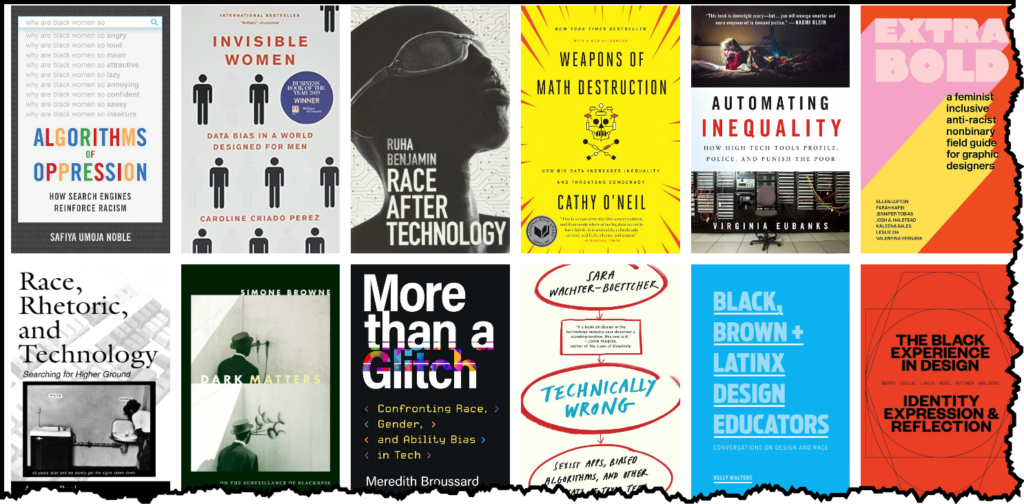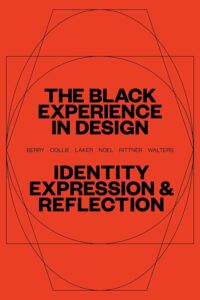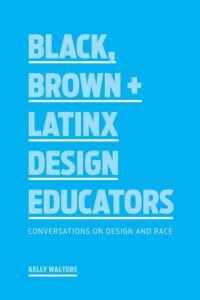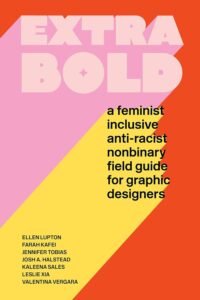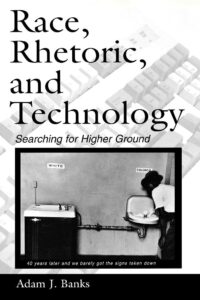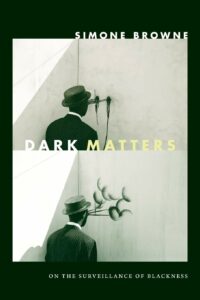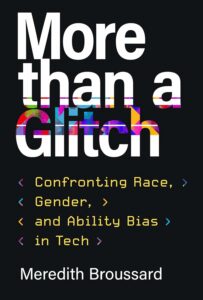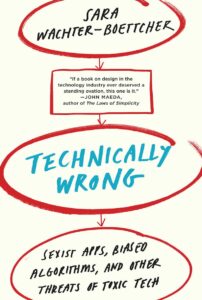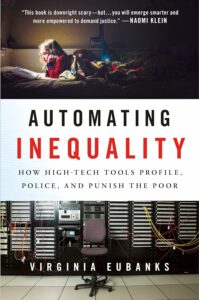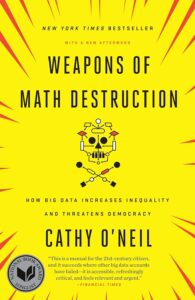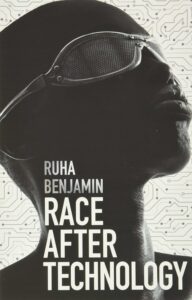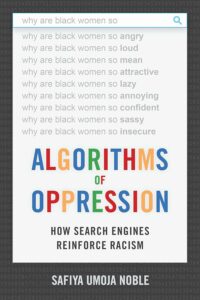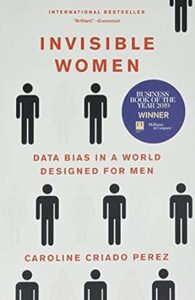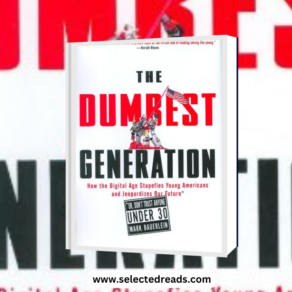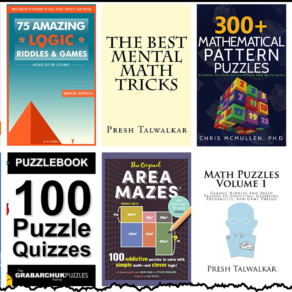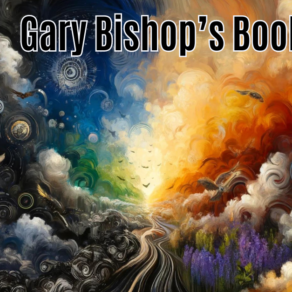Books on race and technology are the topic of our blog post today!
In today’s digitally-driven world, it’s easy to get swept up in the allure of technological advancements, praising them for their efficiency, innovation, and potential for democratization. But what if these very tools are also perpetuating some of the social injustices they promise to eliminate?
From seemingly innocuous search engines to complex predictive algorithms, the underbelly of tech isn’t as neutral as we’d like to think. Today, I want to dive into some critical readings that pull back the curtain on how technology isn’t just a tool but an actor that can reinforce systemic issues like racial discrimination, social inequality, and more.
These books aren’t just eye-openers; they’re call-to-action pieces that challenge us educators, parents, and citizens to scrutinize not just how we use technology, but also how it uses us. So let’s dig in and unravel these perspectives.
Books on Race and Technology
Here are our top picks for books on race and technology:
1. The Black Experience in Design: Identity, Expression & Reflection, by Anne H. Berry
This anthology is a crucial read for anyone wanting to understand the oft-overlooked experiences and contributions of Black designers in a field dominated by Eurocentric ideas. Anne H. Berry crafts a narrative that serves multiple purposes: it’s an educational tool, a collection of diverse perspectives, and a source of inspiration. She gathers stories, research, and conversations that resonate from a Black/African diasporic lens.
The book doesn’t just lament the lack of diversity in design; it acts as a blueprint for how to change it. It leans into the current social and political momentum stemming from the Black Lives Matter movement to advocate for systemic changes in design education, research, and practice. This text isn’t just for design students or professionals; it meets people wherever they are in their understanding of design.
2. Black, Brown + Latinx Design Educators: Conversations on Design and Race, by Kelly Walters
This book offers a rare lens into the life journeys of Black, Brown, and Latinx educators in the design field, detailing everything from their childhood to their academic and professional paths. Kelly Walters presents a cross-section of rich, multi-ethnic backgrounds, including African American, Jamaican, Indian, Pakistani, Puerto Rican, Dominican, Mexican, and Brazilian voices.
What stands out is the real-world relevance of these stories. They act as invaluable resources for students and emerging designers of color, providing them with relatable experiences and strategies for navigating the intricacies of race in the design world. Moreover, the book dives into the challenges of teaching design at various types of institutions, shedding light on an often-overlooked aspect of academia.
3. Extra Bold: A Feminist, Inclusive, Anti-racist, Nonbinary Field Guide for Graphic Designers, by Ellen Lupton
Ellen Lupton’s “Extra Bold” takes a comprehensive look at the power structures affecting the design field through a feminist, inclusive, anti-racist, and nonbinary lens. The book is an amalgamation of interviews, biographical sketches, and practical guides, each dissecting different layers of oppression like sexism, racism, and ableism in the workplace.
The book excels in its multi-dimensional approach—it’s part how-to guide, part manifesto, and part inspirational anthology. Whether you’re navigating wage gaps or mentorship, this book offers pragmatic advice interwoven with critical essays that challenge mainstream design principles.
4. Race, Rhetoric, and Technology, by Adam J. Banks
Adam J. Banks tackles the connection between race and technology head-on, using the concept of the Digital Divide as a metaphor for America’s broader racial disparities. Rather than offering mere critique, Banks digs deep into the African American rhetorical traditions, which have always been steeped in a struggle for justice and equal participation in society. He contends that these rhetorical frameworks can provide unique insights into the complex relationship between African Americans and technology.
The book navigates through a historical and cultural maze of appeals, warnings, and debates that draw a clear line between technological issues and the African American struggle for equitable participation. One thing that resonates with me is Banks’ assertion that the major ethical questions surrounding rhetoric and composition are directly tied to technology access and addressing race. This book calls for a reorientation in how we approach African American rhetoric and challenges mainstream perspectives in English Studies and other related fields.
5. Dark Matters: On the Surveillance of Blackness, by Simone Browne
Simone Browne’s “Dark Matters” dives deep into the world of surveillance, exploring how it disproportionately targets black individuals. Browne argues that surveillance isn’t a modern phenomenon but rather one rooted in history, tracing back to practices like slave branding and runaway slave notices.
The book crosses disciplinary boundaries, blending black feminist theory, sociology, and cultural studies to critique a wide array of methods through which blackness is surveilled.
What Browne articulates exceptionally well is that surveillance is both a discursive and material practice that inherently strengthens racial divisions. The book serves as a wake-up call, bringing our attention to the extent to which modern surveillance technologies are built upon a historical foundation of racial bias.
6. More than a Glitch: Confronting Race, Gender, and Ability Bias in Tech, by Meredith Broussard
Meredith Broussard’s “More than a Glitch” poses a provocative question: What if tech biases aren’t bugs but features? Broussard takes a multidisciplinary approach to demonstrate that neutrality in tech is a facade. She offers case studies that highlight how these so-called “glitches” have systemic consequences that impact race, gender, and ability.
One thing that caught my eye is her argument against striving for “inclusive” tech, instead advocating for the rooting out of biased algorithms. It’s a notion that aligns well with what I’ve been thinking about how technology influences education. So often, we educators look for ways to be inclusive, but Broussard’s perspective offers a more radical approach: that we should dismantle the underlying biases first.
7. Technically Wrong: Sexist Apps, Biased Algorithms, and Other Threats of Toxic Tech, by Sara Wachter-Boettcher
“Technically Wrong” by Wachter-Boettcher is a timely exposé that digs into the belly of the beast—our daily-use digital services. It uncovers a host of ethical issues, from chatbots that harass women to algorithms that disproportionately jail black individuals.
One aspect of the book that caught my attention is how these digital products have actually ingrained traditional societal biases. This really makes me think about the implications for educators.
In essence, these technologies aren’t just tools; they’re shaping young minds, often in ways that perpetuate inequality. It ties into some of the observations I’ve made while researching educational technology, where an app can inadvertently reinforce stereotypes or skewed perspectives.
8. Automating Inequality: How High-Tech Tools Profile, Police, and Punish the Poor, by Virginia Eubanks
Eubanks’ “Automating Inequality” is a sobering dive into the discriminatory landscapes created by modern tech tools. From cutting off benefits to predictive policing, the book zeroes in on how these systems disproportionately affect the poor. In educational settings, I’ve noticed similar patterns where algorithms sometimes penalize students based on socio-economic factors rather than academic performance.
Eubanks makes a compelling argument that this isn’t just about poor algorithmic decisions but reflects a broader societal issue. It echoes a study I’ve seen in the “American Sociological Review,” which delves into the criminal justice system’s use of algorithms and highlights their detrimental impact on marginalized communities.
9. Weapons of Math Destruction: How Big Data Increases Inequality and Threatens Democracy, by Cathy O’Neil
In “Weapons of Math Destruction,” Cathy O’Neil, a seasoned mathematician and data scientist, offers a powerful critique of the algorithms that shape our lives. She argues that these algorithms are often not just flawed but systemically biased, magnifying societal inequalities.
O’Neil’s discussion on how these models are “unregulated and uncontestable” hit home for me. In the education system, we often use algorithms to assess student performance and even to allocate resources. Yet we rarely scrutinize these systems for bias or fairness, which in the end could very well be deciding a child’s educational trajectory.
10. Race After Technology: Abolitionist Tools for the New Jim Code, by Ruha Benjamin
Ruha Benjamin’s “Race After Technology” tackles the often overlooked issue of how technology can act as a new kind of social sorting, creating what she calls the “New Jim Code.” She’s not just talking about overt racial biases programmed by engineers but also highlights how algorithms can inadvertently amplify existing societal inequalities.
Her notion that race itself can be viewed as a “technology” designed to stratify social injustice is an intriguing idea. This concept brings to mind my own observations on the digital divide in education, where students from marginalized communities often get left behind due to the inherent biases in educational tech.
11. Algorithms of Oppression: How Search Engines Reinforce Racism, by Safiya Umoja Noble
Safiya Umoja Noble’s “Algorithms of Oppression” is a real eye-opener, especially the part about how search engines like Google can perpetuate stereotypes. I couldn’t help but think about the searches students might be making for school projects and how their perceptions could be shaped by these biased algorithms.
What really strikes me is that Noble highlights a systemic problem, not a series of isolated incidents. This is a sentiment echoed in numerous academic publications, including a study by Latanya Sweeney, published in the journal “Communications of the ACM,” where she found racial discrimination in online ad delivery.
12. Invisible Women: Data Bias in a World Designed for Men, by Caroline Criado Perez
In “Invisible Women: Data Bias in a World Designed for Men,” Caroline Criado Perez pulls back the curtain on the glaring data gap in our systems. She argues that our world—fraught with systemic inequalities—is designed largely with men in mind, often to the detriment of women.
This isn’t just about restroom lines or inconveniently high shelves; it’s about life-altering issues like healthcare, urban planning, and workplace conditions. For instance, the “one-size-fits-all” mantra in product design usually just fits men, leaving women to adapt or face the consequences. Ever noticed how public transportation seems more geared towards men’s commuting patterns? That’s not a coincidence; it’s a product of biased data and planning.
The book is a wake-up call for anyone who thinks that we’re living in an age of data-driven enlightenment. It shows that even data, often touted as an objective resource, can be weaponized to perpetuate gender bias. Criado Perez showcases her points with hard-hitting studies from the U.S., the U.K., and beyond, presenting a compelling narrative filled with wit and intelligence.
Final thoughts
So there we have it, a collection of insightful books that interrogate the ethical, racial, and gendered dimensions of technology and data. From biased algorithms that discriminate against the poor and people of color, to data gaps that erase women’s needs and experiences, these works show us that technology is far from neutral. It reflects and amplifies our existing societal biases, and we have a collective responsibility to make it better.
Let’s take these revelations as a call to action, to continuously scrutinize and challenge the technologies that shape our world. As educators, parents, and citizens, we must strive to advocate for a more equitable digital landscape. The road ahead is long, but armed with the knowledge from these books, we’re better equipped for the journey.



